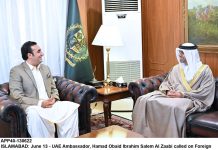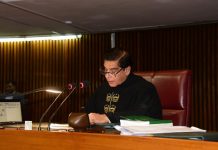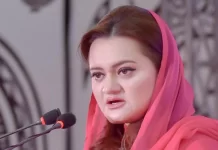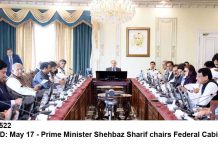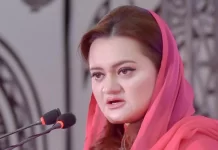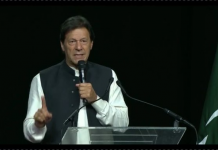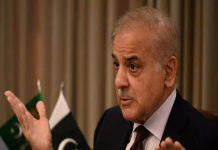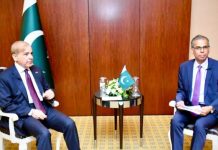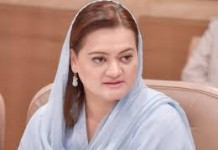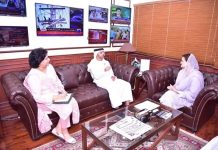ISLAMABAD: Adviser to Prime Minister on Foreign Affairs Sartaj Aziz on Saturday arrived in Amritsar to attend two-day Heart of Asia conference.
He was received by Pakistani High Commissioner Abdul Basit and Indian External Affairs Ministry’s joint secretary.
Aziz also sent a bouquet to ailing Indian External Affairs Minister Sushma Swaraj at her residence.
The adviser would represent Pakistan in the conference with a focus on regional cooperation between Afghanistan and its neighbours and the efforts for durable peace in the war-ravaged country.
The two-day summit is scheduled in Indian city of Amritsar.
The initiative was launched in 2011. Its members are Afghanistan, Pakistan Azerbaijan, China, India, Iran, Kazakhstan, Kyrgyzstan, Russia, Saudi Arabia, Turkey, Tajikistan, Turkmenistan and the United Arab Emirates with objectives to boost economic and security cooperation.
The process was backed by several Western countries and the international organisations.
According to Indian media, Aziz’s early arrival also raised speculation that he and Narendra Modi would meet for more than the customary welcome handshake, as he is attending a dinner hosted by Modi for conference delegates.
“We advised Mr. Aziz to come early given the fog factor in the morning,” a Pakistani diplomat told The Hindu, referring to visibility issues that have delayed dozens of flights to north Indian cities including Amritsar. The forecast for Sunday morning was a visibility of 600M, far below the stipulated 1000M clearance VIP flight controllers normally insist on, another official said.
“There is no meeting,” a senior official told the newspaper, when asked about the chance of a ‘pull-aside’ meeting between Modi and Aziz in Amritsar, indicating only a joint call-on was scheduled. Aziz will meet Modi along with other ministerial guests at the conference at the Sadda Pind local resort for dinner.
Pakistani High Commissioner Abdul Basit told the newspaper that Pakistan was ready to wait.
“If India is not ready, we can always wait. We will continue to work to break the impasse, but we are very clear that dialogue is the only way our countries can move forward and they cannot live in a state of perpetual hostility,” Mr. Basit said.

